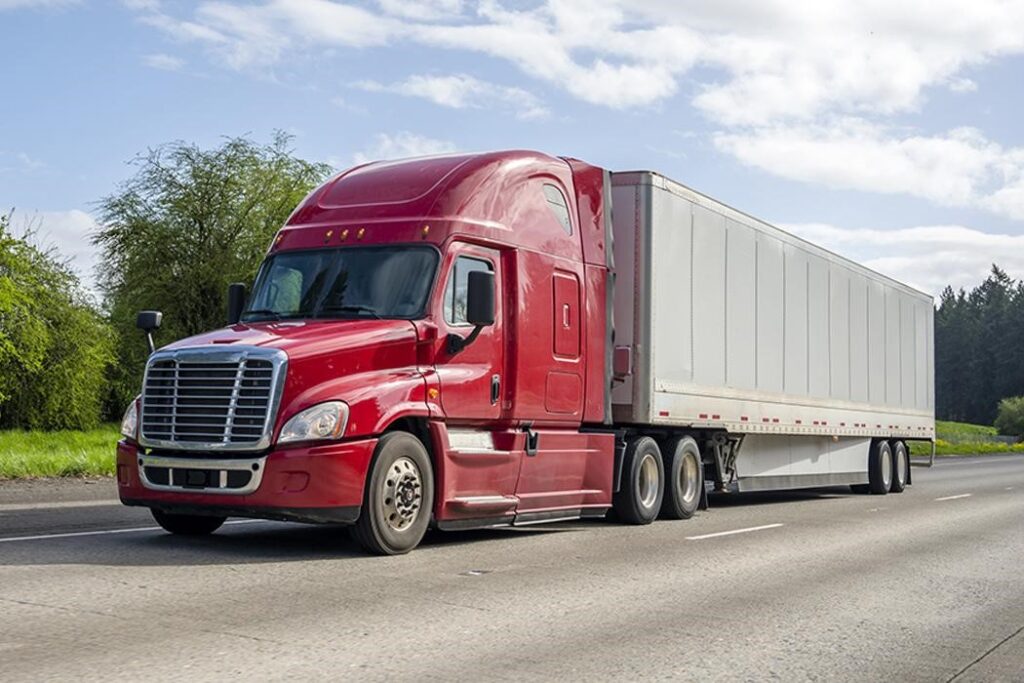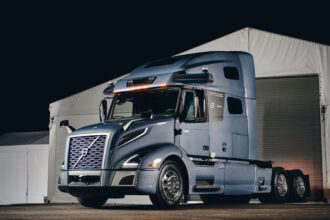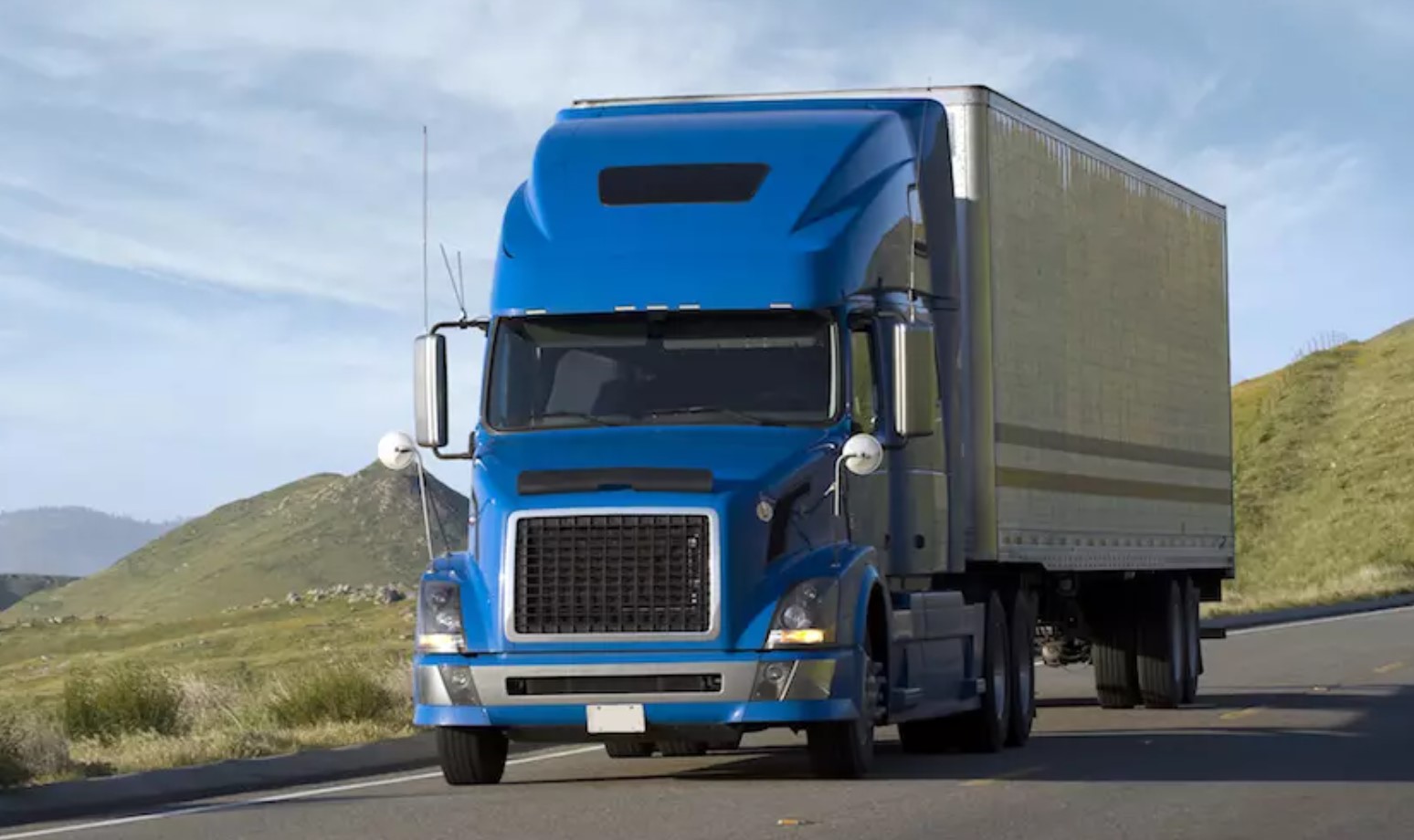Table of Contents
Do you find yourself at the crossroads of entrepreneurship, with a vision to venture into the transportation industry but you have insufficient funds? Well, leasing a trailer truck could be your gateway to a lucrative and thriving business endeavor. The prospect of navigating this terrain might seem daunting, but fear not, for this guide is your beacon of knowledge, illuminating the path to leasing a trailer truck for your business ventures.
Now, think about the game-changer – leasing. Leasing a trailer truck isn’t just a financial transaction; it’s a strategic move that empowers your business. Imagine having the freedom to expand your fleet without the weight of a hefty initial investment. Think about the flexibility to upgrade to the latest models, ensuring your business is always at the cutting edge of efficiency and technology. Leasing isn’t just about saving costs; it’s about unlocking a world of possibilities for your venture.
Understand that this guide offers more than just technicalities; it’s a roadmap infused with industry wisdom, empowering you to make informed choices and avoid common pitfalls. By the time you reach the end, you’ll not only grasp the art of trailer truck leasing but also feel inspired and confident to embark on this transformative journey.
To Know How to Lease a Trailer Truck for Business;
- Assess Your Business Needs
- Research Trailer Leasing Companies
- Choose the Right Trailer Type
- Review Lease Agreement
- Complete the Application Process
- Arrange Insurance Coverage
- Perform Necessary Inspection
- Finalize the Lease Agreement
- Monitor Lease Compliance
Glad? Continue reading.
1. Assess Your Business Needs
To know how to lease a trailer truck for your business, assess your business.
Follow these crucial steps to assess your business needs when leasing a trailer truck:
Define Your Trailer Requirements
Start by selecting the right type, size, and capacity of the trailer that aligns with your cargo and industry demands. Tailoring your choice is key to success.
Set Your Budget
Calculate your budget and financial capacity for leasing, ensuring it doesn’t strain your business finances. Remember, leasing offers flexibility.
Purpose of Leasing
Determine whether your need is short-term flexibility or long-term stability. This decision will shape your leasing strategy.
>>>MORE: Trailer Truck Business Checklist
2. Research Trailer Leasing Companies
To understand how to lease a trailer truck for business, research trailer leasing companies.
Conducting thorough research on trailer leasing companies is paramount to making the right choice for your business. Start by delving into your local and regional options, making use of online resources and industry connections to gather insights. Then, compare the offerings of these companies meticulously, considering lease terms, pricing, and additional services like maintenance packages. Furthermore, don’t underestimate the value of real customer experiences – read reviews and seek recommendations to assess the reliability and quality of service. Armed with this knowledge, you’ll be well-prepared to make a confident and informed decision as you progress on your trailer truck leasing journey.
3. Choose the Right Trailer Type
To comprehend how to lease a trailer truck for business, choose the right trailer type.
Selecting the right trailer type is a pivotal decision in your business endeavor. Assess your specific needs meticulously – whether it’s a flatbed for versatile loading, a dry van for secure transport, a refrigerated trailer for temperature-sensitive goods, or a specialized trailer tailored to unique cargo.
Take a keen look at the condition and maintenance records of the trailers available for leasing. Well-maintained trailers not only enhance efficiency but also minimize unexpected breakdowns, ensuring smooth operations.
Moreover, prioritize safety and compliance. Ensure the chosen trailer type aligns with industry regulations and safety standards. This not only protects your cargo but also upholds your business’s reputation. By making an informed choice in trailer selection, you’re laying a sturdy foundation for a successful and secure leasing partnership.
4. Review Lease Agreement
To grasp how to lease a trailer truck for business, review lease agreement.
When you’re going over those lease agreements, think of it as reading the fine print on an important contract. Take the time to really understand the terms and conditions. This includes knowing how long the lease lasts, what your monthly payments will be, and who’s responsible for maintenance.
If all the legal jargon feels overwhelming, don’t hesitate to get a legal pro on your side. They can help you decipher the nitty-gritty details, making sure you’re fully aware of what you’re signing up for. Also, remember that negotiations are your friend. Don’t be afraid to discuss and adjust terms with the leasing company to make sure it suits your business needs perfectly.
5. Complete the Application Process
To have knowledge of how to lease a trailer truck for business, complete the application process.
Now comes the crucial step: completing the application process. Think of it as your business’s first handshake with the leasing company. Start by submitting a lease application – it’s like introducing yourself formally. Be ready with all the necessary information about your business and finances; this transparency builds trust.
Gather your financial statements and proofs of insurance diligently. These documents are like your business’s credentials; they show you mean serious business. And when the leasing company conducts a credit check, cooperate fully. It’s like vouching for your own reliability. By being responsive and prepared, you’re paving the way for a successful application.
6. Arrange Insurance Coverage
To apprehend how to lease trailer truck for business, arrange insurance coverage.
Firstly, secure the right insurance coverage for the leased trailer. This includes liability, cargo, and physical damage insurance. It’s like getting the best armor for your business, ensuring you’re protected in case of unexpected events.
Secondly, pay close attention to the insurance requirements outlined in your lease agreement. It’s like reading the fine print to make sure everything aligns with your coverage.
Lastly, stay organized. Keep accurate records of all insurance documents and payments. This is like having your important files neatly organized on your computer. It helps you stay on top of your insurance and ensures your business is well-protected.
7. Perform Necessary Inspection
To know how to lease trailer truck for business, perform necessary inspection.
Before you take possession of the leased trailer, perform a thorough inspection. It’s like giving your new vehicle a close look before driving it home. Check for any existing damage or issues. Document everything meticulously. If you find any problems, make sure the leasing company is aware, and ensure they commit to addressing these issues. This is like reporting any scratches or dents on a rental car before driving off the lot.
Schedule routine inspections and maintenance throughout the lease term. Think of it as regular check-ups for your business’s health. This helps prevent unexpected surprises and keeps your trailer in top-notch condition.
>>>PRO TIPS: Trailer Truck Business Ideas
8. Finalize the Lease Agreement
To fathom how to lease trailer truck for business, finalize the lease agreement.
First things first, once you’ve ironed out all the terms and conditions, go ahead and sign that lease agreement. It’s your stamp of approval, indicating you’re ready to kick-start your business journey. Always ensure you receive a copy of the signed agreement. Think of it as your golden ticket – you’ll want to keep it safe for future reference, just like you would with any important document. Confirm the delivery or pickup date for the trailer. Think of it as scheduling the delivery of your new car – you want to know when it’ll be in your hands. So, double-check that date and get ready to put your leased trailer to work.
9. Monitor Lease Compliance
To understand how to lease a trailer truck, monitor lease compliance.
You’re in the driver’s seat now, and it’s crucial to keep an eye on lease compliance. First and foremost, stay vigilant about meeting the terms of your lease agreement. Pay close attention to payment deadlines and your maintenance duties. These are the nuts and bolts that keep your operation running smoothly.
If you spot any issues or discrepancies along the way, don’t hit the brakes. Address them promptly with the leasing company. Open communication is your ally here. Looking ahead, plan for what happens at the end of your lease term. Will you renew, return, or explore purchase options? Mapping this out in advance ensures you stay on the right road as your business evolves.
So, keep that watchful eye, maintain open lines of communication, and plan for the future – you’re in control, and your trailer truck business is on the road to success!
Recap
Leasing a trailer truck for your business involves a strategic process. Start by assessing your business needs, budget, and leasing purpose. Research and compare reputable leasing companies, selecting the right trailer type and reviewing lease agreements meticulously. Complete the application process, secure insurance, and perform essential inspections before finalizing the lease agreement. After obtaining the trailer, monitor compliance, address issues promptly, and plan for the lease’s end. This comprehensive approach ensures a successful and cost-effective solution for your business’s transportation needs.



















